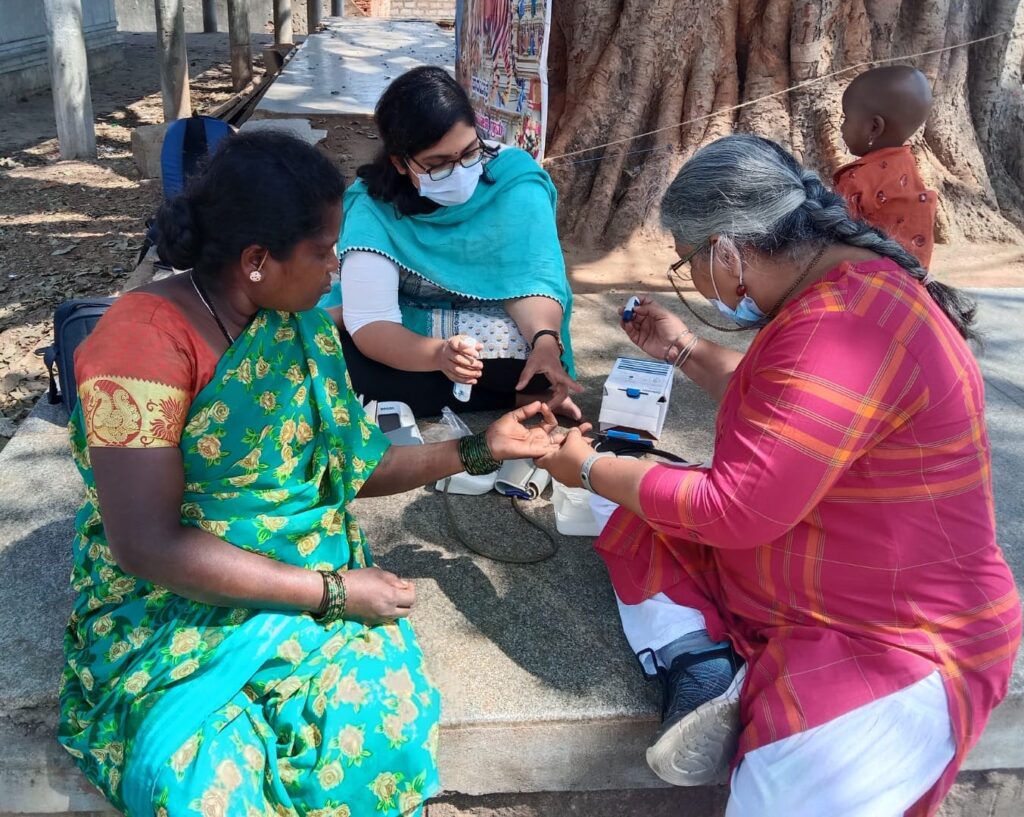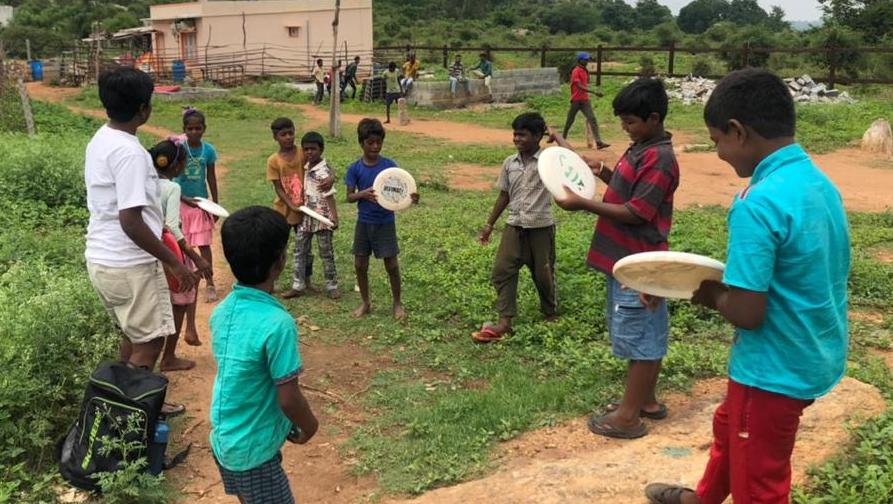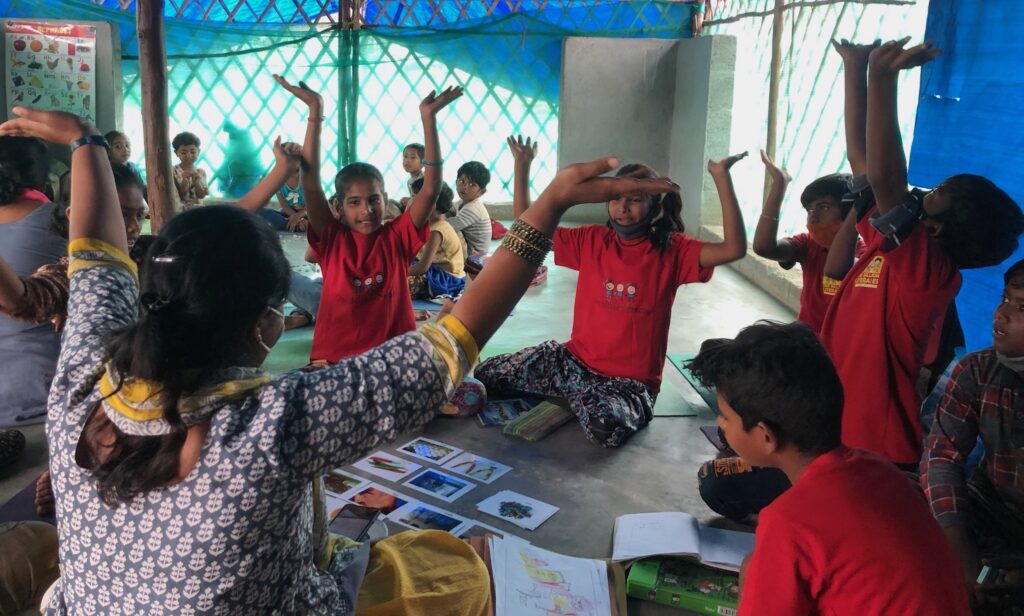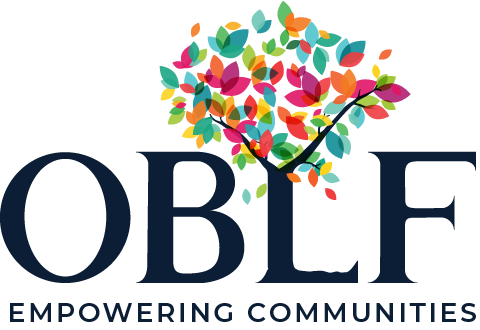Nurture: Elevating Lives, Inspiring Sustainable Change
The COVID-19 pandemic has deepened the marginalization of already vulnerable communities, pushing them further into hardship. OBLF’s Nurture program is dedicated to reversing this trend by working closely with these highly marginalized groups, focusing on the critical elements needed to elevate their standard of living and empower them for a brighter future.
Tribal Community, Bannerghatta
OBLF is actively engaged with a 1,500+ member tribal community of Iruliga and Hakki Pikki (notified as particularly-vulnerable tribal groups) settled on the outskirts of the Bannerghatta National Forest. This community, having migrated from another state over 40 years ago, faces severe challenges. The first and second generations have had no formal education, resulting in negligible literacy levels, poor healthcare access, and a lack of formal vocations. These barriers, combined with limited livelihood opportunities, contribute to a persistently low standard of living.
To address these issues, OBLF is leading a comprehensive community rehabilitation project encompassing education, healthcare, and adult literacy.
- Health Clinic: Our multi-faceted healthcare initiative operates a weekly clinic that provides preventive care, primary healthcare, eye care, and mental health services. By delivering consistent healthcare support, we aim to reduce the prevalence of non-communicable diseases and foster a healthier, more resilient community.


- Sports-Based Life Skills Program: Recognizing the transformative power of sport, OBLF has introduced a life-skills program for the community’s adolescent youth. Using Ultimate Frisbee—a mixed-gender sport—we create a fun and safe environment where young people can learn critical life skills like empathy and challenge gender norms. Through this program, we envision a future where these young individuals are equipped to pursue greater opportunities, rights, and freedoms.
Waste Picker’s Community, Heelalige
The waste pickers community in Heelalige is comprised of migrant workers who pick, segregate, store, and sell waste. As an undocumented segment of the workforce, they are not recognized by any civic body, rendering them ineligible for governmental support or subsidies. Around 500 people live in this settlement, with roughly 100 families sharing a 3-acre plot that doubles as their living space and work area for waste segregation.
Since 2020, OBLF has committed to uplifting this community by addressing multiple critical needs:
- Healthcare: We provide essential healthcare services to ensure the well-being of all community members.
- Education: OBLF is dedicated to breaking the cycle of poverty through educational initiatives, targeting both children and adults.
- Sanitation and Infrastructure: By improving living conditions, we aim to create a safer and more dignified environment for the community.
- Vocational Training: We empower community members by offering training that equips them with the skills needed to pursue more stable and rewarding employment opportunities.
Through the Nurture program, OBLF is not just providing immediate relief but is also laying the foundation for long-term, sustainable change, ensuring that these communities can thrive and achieve a better quality of life for generations to come.

